|
Vidas: Hi guys, this is Vidas!
Ausra: And Ausra! V: Let’s start episode 431 of Secrets of Organ Playing Podcast. And before we go to the podcast question for today, we’d just like to express our feelings about what happened at Notre Dame a little bit. Right, Ausra? A: True. Such a tragedy. V: How do you feel about it? A: Well, I feel very sad, as I think many people feel right now. And now, reading all those expressions that Macron promises to rebuild it, to rebuild it even more beautiful, already seems for me like somebody’s making for himself political dividends! Because right now, I’m sort of worried that because of the water and of all that damage, it could collapse. V: The first, most important present task would be to secure the structure of the cathedral, what is left, and preserve it from collapsing, so that the remaining artifacts and instrument, the Grand Organ, I think, has survived in some shape, we don’t know yet what kind of condition it is in, but if this structure wouldn’t hold, for example, because there is lots of water on the vault above the church, and it would be tragic to see it collapse. Another idea is to take the organ apart and preserve it in some workshop, and then later assemble it when it’s completely rebuilt, and when the cathedral is rebuilt. A: I guess you cannot do that right now, because you cannot even enter the cathedral. It has to stay like this until Friday, until the water will dry and it will be possible to enter. V: So, imagine if it’s soaked up with water, everything is flooded with water, when it’s dried up, I’m not an engineer, but it seems to me that everything will shrink a little bit, and there might be cracks in the walls and structures, and how that will affect the resistance of the walls and vault, I don’t know. A: In general, I think that it’s a horrible thing that in the 21st century, all the world could watch on the TV how really one of the most beautiful and important cathedrals in the world just goes in fire like that, and couldn’t do anything, because at the beginning, it seemed that nothing happens at all, that nobody even tries to put the fire down, which is horrible. I don’t know who did that reconstruction and how all of this began, but it’s unforgivable, I think. V: I think we have to just wait for the investigation to reveal some details, if it will reveal the real causes—I don’t know—but, I’m hopeful. So, as sad as it is, I think the life still must go on, and we still have to practice the organ the best we can, and we have to try to answer Sally’s question today. So Sally wrote: “I struggle with finding time to work on expanding my organ skills and techniques. It seems I spend most of my time at the organ prepping for choir rehearsal and weekend Mass. I also work full time, so there not a lot of hours available for practice.” So this is a very common situation, when people work full time and they don’t have, seemingly, time to practice the organ. A: Well, then just try to improve your skills during your preparation for choir! I guess I assume she’s talking about accompaniments, yes? You could also expand your skills on playing accompaniment, if you will do it mindfully. V: And she needs to prepare for weekend Mass, which probably involves playing organ. A: True! So she spends quite a lot of time playing, maybe she’s not practicing what she would wish for, but it’s still a practice. V: At this stage of your life, Ausra, if you had to play in church, would you spend a lot of time playing hymns? A: Definitely not. V: Right? So, what it means, is that you can kind of gradually mix them together—hymns and techniques—and maybe even repertoire, and once your techniques and repertoire are much more developed, you will have an easier time to prepare for weekend Masses, I think. A: I guess it’s the same as teaching for school, for example. For the first few years, I really had to struggle, and I really had to prepare for every class that I would teach, but you know, after having experience teaching for 13 years, I don’t need to do it anymore, because I have enough experience just to keep me going, basic like, and do many things really mechanically. It’s all there, and I guess it’s the same with playing organ service. Of course, sometimes you need to do something special, and maybe add something special and learn new things and add new things, but in general, it may be quite automatic. V: And for me, too, I’m working with technology for many years now, since I first started Secrets of Organ Playing back in 2011. I was doing this alone at first, and later Ausra joined in, but she’s always responsible with content, with ideas. Technology is left to me. Which means, at first, I had to figure out how to do it, and it was a slow process. But I didn’t give up, and taught myself some things, and at first it was simple things, then gradually advanced things, but now what I do doesn’t take much time for me to maintain the things that I need to do on a daily basis, because the experience is there, and my skills are quite fast, I think, with computers. I’m not a coder, not a programmer, but what I’m doing—publishing, editing—those things come to me very naturally, now. But, of course, there are always new things on the horizon to learn, so I’m kind of looking out for some innovations that I could apply, also. So, it kind of relates to Sally’s situation, also. At first, she has to spend some time developing the skills, and then later there will be less time required to maintain it, but mixing some time to add some more new skills, because this current level never is satisfying. Right? We always move on and move up, hopefully forward, hopefully improving ourselves. A: Yes, there’s always something new, totally new. V: Okay guys, we hope this was useful to you, so keep your minds and hearts focused on Notre Dame, maybe donate something to the funds of restoration, if there are some options. I haven’t seen some accounts or some foundations set up yet, because it’s too early. It has just happened two days ago as we are recording. We are recording Wednesday morning, and it just happened Monday night. So, by the time you guys hear this conversation, there might be more details about what has been preserved, what has not, and we are also looking forward to finding out everything we can, and we will keep you up to date, as well. So, stay tuned. We hope you will keep sending us more of your questions, because we love helping you grow, guys. And remember, when you practice, A: Miracles happen. DON'T MISS A THING! FREE UPDATES BY EMAIL.
Comments
Thank you everyone for participating! You all made us very happy with your entries.@laputis and I selected the following winners. You can congratulate them here:
https://steemit.com/@organduo/winners-of-secrets-of-organ-playing-contest-week-16 DON'T MISS A THING! FREE UPDATES BY EMAIL.
Have you ever wanted to start to practice on the organ but found yourself sidetracked after a few days? Apparently your inner motivation wasn't enough.
I know how you feel. I also was stuck many times. What helped me was to find some external motivation as well. In order for you to advance your organ playing skills and help you motivate to practice, my wife Ausra - @laputis and I invite you to join in a contest to submit your organ music and win some Steem. Are you an experienced organist? You can participate easily. Are you a beginner? No problem. This contest is open to every organ music loving Steemian. Here are the rules DON'T MISS A THING! FREE UPDATES BY EMAIL.
Would you like to master Sonata on the 1st Tone by Jose Lidon (1752-1827), a Spanish composer?
I have created this score for you with complete fingering for ideal articulation, articulate legato. Thanks to Alan Peterson who transcribed this score from my slow motion video. Basic level. PDF score. 2 pages. Check it out here This score is free for Total Organist students.
DON'T MISS A THING! FREE UPDATES BY EMAIL.
Vidas: Hi guys, this is Vidas!
Ausra: And Ausra! V: Let’s start episode 429 of Secrets of Organ Playing Podcast. And today, I’d like to talk a little bit about what Jeremy wrote about Total Organist when I asked him how is total organist working for him so far. He wrote: "Just so much to learn! Loving every second as it gives me something to work on daily." V: Do you know what he means, Ausra? A: Well, I guess that I do. V: We have plenty of materials in that database that we’ve prepared—fingering and pedaling and training, and programs, and anything you’d probably wish, too. And it’s constantly improving and updating. So, the good thing is that we have subdivided the Total Organist achives and training materials into the levels of difficulty. You know, Ausra? Beginners, Basic level, Intermediate level, and Advanced level. A: That might be very useful, because sometimes it’s confusing, and you don’t know which one you need. How does one determine which level he or she is in? V: Well, there are quite a few ways, but the first way, very intuitive way, for example, if a person thinks he or she is at the advanced level, they could download a score from the advanced level and sightread it. If it’s too difficult for them, then go one level earlier, into the Intermediate level, and if that’s too difficult, maybe go to the basic level, and something like that. Then, sooner or later, you will discover your true situation. Another thing that is possible to do with Total Organist is that you look at your interests. Some people like Bach’s music. Some people like Harmony and Theory. Some people like Hymn playing. Some people like improvisation, and Sightreading. And we have courses and training for any area of that level of expertise. So, you don’t have to play all of it that we provide, but you can choose what works for you, for your goals. A: Excellent! V: Now Ausra, do you think that Jeremy and others download those materials on a frequent basis? Maybe not daily, but something like that, or do they practice one score for more than one week? A: I think it depends on the score—what kind of a score it is. If it’s a more advanced organ composition, then yes, you wouldn’t be able to learn it, maybe, in a day. You would need some time to work on it. V: You know what an interesting thing is, that whenever I sightread organ music, I record it. And my hands are clearly visible from above. And then, I upload this video to YouTube, and then distribute that video to our team of transcribers who work on fingering and pedaling for these scores. And as soon as they’re done, they send me the link of that score, and as soon as I’m able to double check their work and finalize the score and upload it online, then I’m sharing the link with the Total Organist community as well. So, they don’t need to wait for the rest of the Secrets of Organ Playing community to get it, because we have a waiting line, which may form quite in the future waiting list. But the Total Organist community would get it first. A: Excellent! So it’s very beneficial to belong to this community. V: You know, and just so you know, for example, yesterday, I submitted “Sinfonia No. 9 in F minor” to transcribe by Bach to Jan, who has just finished transcribing the “Sinfonia” by Bach, also, and she needed more work afterwards, so I went to YouTube and gave her more work. And, before that, obviously, I recorded a “Andante Sostenuto” by Widor, and this is an assignment for Juan, who has just finished something else. And, by the way, yesterday, I recorded a long video, maybe 30 minutes long, with the piece by Vierne, “Carillon de Westminster,” because one of our subscribers, I think it was John, asked for the fingering and pedaling for this wonderful piece, and I haven’t done this before, so yesterday, I put a camera above my hands, and recorded it for half an hour and uploaded it to transcribe for Alan. So hopefully, this piece will come quite soon, too. A: It’s a great piece! V: Maybe by the time you guys hear this conversation or read the transcript of it, maybe by that time, this score will be already available. So guys, if you want some kind of material to work on on a daily basis, and support from other members of the Total Organist community, we would highly recommend this course. And not only we, you see, Jeremy recommends it wholeheartedly, as well. Thanks guys, this was Vidas, A: And Ausra. V: Please send us more of your questions; we love helping you grow. And remember: When you practice, A: Miracles happen! DON'T MISS A THING! FREE UPDATES BY EMAIL.
Would you like to master Christus, der uns selig macht, BWV 620 by J.S. Bach?
I've created this practice score (left hand in alto clef) with complete fingering and pedaling so that our students could master this chorale prelude from the Orgelbuchlein efficiently, saving many hours of frustration and achieving ideal articulation - articulate legato. Thanks to Carlos David Bernales Vilca for his meticulous transcription from slow motion video. Basic level. PDF score. 1.5 pages. Check it out here This score is free for Total Organist students.
DON'T MISS A THING! FREE UPDATES BY EMAIL.
I'd like to share with you the interview with one of the titular organists of Notre Dame, Olivier Latry about cathedral's grand organ, it's present state and it's future:
https://www.wbur.org/npr/715271953/after-the-flames-notre-dames-centuries-old-organ-may-never-be-the-same-again Thanks to John Higgins who shared it with me.
DON'T MISS A THING! FREE UPDATES BY EMAIL.
Vidas: Hi, guys, this is Vidas.
Ausra: And Ausra. V: Let’s start episode 430, of Secrets of Organ Playing Podcast. This question was sent by May, and she writes: Hi Vidas, Thank you very much for addressing to my concerns in this email! I have been spending over an hour each day on the harmony exercises for a few weeks. I worked on the difficult way whenever possible (using 2 fingers from each hand) as suggested by you in an earlier email. Ever since I could manage to use to play the bass part (of hymns) with the pedals, I always use the pedals. I find it much easier to play the hymns with 3 fingers and both feet. Now I am not comfortable at all playing hymns with hands only. I am hoping I can slowly regain my hands-only hymn playing skills by doing these harmony exercises. For quite many chords in the exercises, there is no way I can play them with hands only and 2 fingers from each hand. I need the help from the pedals anyways. I always wonder how piano players practice these chords. A question from the week 8 harmony exercises… we should skip all D-T sequences starting with the 3rd note (from the dominant chord) on top. Is this correct? I saw that you have made the fingering of BWV 618 available a few days ago. I love to learn this chorale prelude but my hands are small and my fingers are short. My hands and fingers could only stretch to reach one octave only, meaning I am not able to reach certain intervals (e.g. from the low A to middle C in measure #7). Does it mean I could never play this chorale prelude? Is there any ways I can overcome this difficulty? May V: So, Ausra, let’s start from the top, okay? A: Yes! So many things to talk about. V: Mmm-hmm. She’s spending a lot of time on those harmony exercises from Harmony for Organist Level 1. And the first thing that she struggles is playing hymns with hands only, right? A: Well, that’s an interesting struggle, because usually it’s not a problem for people to play hymns by hand. It’s more often problem to play with the pedals. V: I guess she would struggle with pedals also if she used left hand also. A: Well, true. The most, easiest way is to play with pedals and right hand playing in closed position, three voices with your right hand. V: Mmm-hmm. So she probably should practice playing the tenor line with left hand. A: True. This would be a beneficial exercise. And it would improve coordination a lot. V: Mmm-hmm. And um… A: Because since she wrote herself, that she has a small hand, she won’t be able always to play three voices with the right hand and she really needs to play one voice with the left. V: You teach a lot of students on the piano—those harmony exercises. A: Yes. V: She wonders how piano players practice the chords when they have to reach between the bass and tenor, for example. A: Well, of course, we have pedal, sustaining pedal in the piano, but I would not offer, would not suggest my students to use it. Well, but in that case, if you cannot reach, let’s say, bass and tenor voices at the same time, you would hit the bass note first and then would play the rest of the chord… V: Mmm-hmm. A: tenor, alto and the bass. That’s what we do. V: Yeah. A: Or sometimes we can manipulate bass and put it an octave higher. V: Exactly. And she is also wondering about those sequences, dominant to tonic, and the third note, the seventh scale degree… A: Yes. V: is problematic, right? It also, always has to resolve to the first scale degree. A: Well, not always, always. It has to resolve to the first scale degree when it’s in the soprano voice. V: Yes, in the soprano. And in those exercises from week eight, I am skipping dominant to tonic sequences in that position. There is no seventh scale degree in the soprano, and she’s wondering is this correct. Yes! She could do other dispositions but not when soprano is in the seventh scale degree. A: But it’s one of the most common positions of the dominant to have the seventh scale degree in soprano… V: Yes… A: in general. V: but the connection was not harmonic but melodic, and therefore… A: But you could do harmonic connection with the seventh scale degree. That’s very easy. V: I mean melodic. A: Oh, yes, but you said harmonic. V: Did I? A: Yes. V: Okay. I meant melodic. If you have… A: But when you do melodic you could do three melodic connection. V: Oh, I didn’t teach her that. A: That’s the easiest way. If you have let’s say from the bass, G-D-G and B… V: Mmm-hmm. A: you would resolve it to C-C-E-C. V: Skipping G. A: That’s right. That’s one of the most common way in general to resolve dominant. V: And it works in C minor as well. A: True. V: With B natural in the soprano. A: Yes. V: So, G-G-D-B natural, resolving to C-C-E flat C. Mmm-hmm. She’s wondering about reaching certain intervals in Bach’s chorals from the Orgelbuchlein, and since she has short hand only reaching one octave, I think I wrote to her that she could use those lines a little bit creatively, right? Most of the time it’s possible to play Bach with short hands—most of the time. A: Yes, I wouldn’t say that Bach needs a wide hand. V: But from time to time you see like an interval of a twelfth, for example. Maybe that was the case because short octave was present. A: Yes, that’s possible. Also maybe you could help with another hand at that concrete spot. V: Yes. Or… A: Always need to check on this concrete situation. V: Or raise the bass one octave higher for a measure or two... A: Yes that’s possibility too. V: to make the connection logical. Not one note, which is inconvenient, right? But, entire motive, let’s say. A: That’s possibility too. V: Yeah. A: But if you would look at the Bach hand, from the pictures we have left, he didn’t have a big hand himself. Although he had sort of short fingers, but widely spread… V: Mmm-hmm. A: if you can say so. But that’s a good hand for playing polyphonic music. V: Yeah! Maybe people need to do more yoga for fingers. A: I don’t think so. But you know, if you have really long fingers, then maybe organ is not your instrument. Maybe you need to practice violin. V: If you have long fingers? A: Yes. V: Yes. Like Paganini. A: That’s right. But with short fingers and small hand you can perfectly play organ. V: Yes. A: There is plenty of music that could work for you. V: But probably not Vierne. A: Well… V: And Franck. A: Well, I have played some both, although I don’t have such a big hand. V: But it wasn’t comfortable. A: Well, actually it was, after playing for some time. V: I guess your span of your fingers improves with time. A: That’s true. That’s true, especially in the left hand. V: The more difficult music you play, the more it stretches. A: That’s right. V: Mmm-hmm. Thank you guys. We hope this was useful to you. Please send us more of your questions. We love helping you grow. And remember, when you practice… V: Miracles happen! DON'T MISS A THING! FREE UPDATES BY EMAIL.
Would you like to master Three Part Sinfonia No. 6 in E Major, BWV 792 by J.S. Bach?
I have created this score with the hope that it will help my students who love early music to recreate articulate legato style automatically, almost without thinking. Thanks to Juan Osorno for his meticulous transcription of fingering from the slow motion video. Basic level. PDF score. 2 pages. Check it out here This score is free for Total Organist students.
DON'T MISS A THING! FREE UPDATES BY EMAIL.
Vidas: Hi guys! This is Vidas.
Ausra: And Ausra. V: Let’s start episode 427 of Secrets of Organ Playing Podcast. This question was sent by Marjorie. And she writes: Thank you! You were very helpful. My problem: I passed my Grade 7 for Associated Board Organ Exam about twelve years ago. Since then, my playing has deteriorated. I play for church services every Sunday, but I am not challenged. I play a two manual tracker organ with limited stops, and only a bourdon in the pedal. I took my exam on a four manual Cathedral organ. My dream is to play fluently on the organ. Pieces grades 6 and 7 standard. Thanks -Marjorie V: Marjorie probably refers to the English system, where they have graded organ repertoire lists and also exams for those grades. A: Yes. V: And this is rather practical for students who take those grades, take exams and see their progress. So I guess Grade 7 was awhile ago for her. And she needs to pick up, not where she left, but where she is now. A: True. So, she needs to know to think through, and to evaluate herself, to see at which level she is now, and where to move forward. Because now if we don’t make new challenges for us on a daily basis, on a regular basis, then, you know, we are just like standing water. V: Mm-hm. Still water. A: Still water, yes. V: Mm, with certain odor. A: (laughs) That’s right! So, in order to make things better, to improve, we need to be more like a river. V: Flowing somewhere. A: Yes. V: Direction. I could compare this with my pull-up exercises that I do every day. Before going to the French Alps, I could do 17 now. But after I came back, and during that time when were in the Alps, and after when we got back, I had to have some time to recover from the trip, and I didn’t exercise. So, a few days ago I started again doing my pull-ups, and I only could do 15, not 17. A: But it’s still better, Because I remember when you just started to do them, you could hardly do one pull-up, and now you can do 15, so it’s not that bad. V: Yes. It was, now it’s what, the beginning of April? So it was in last August I couldn’t do one pull-up. I could just hang for ten seconds while holding the bar. And then twenty seconds, and then thirty seconds. And then, after awhile I did one. After maybe three weeks, or two weeks. A: So the same for organ playing. V: Mm hm. A: Like, Marjorie is playing the same instrument for many years now. Well, and it seems that it’s not a bad instrument. It’s a tracker organ. Even if a limited stop list, it’s still, you know, a tracker. So I think it’s much better than electronic instrument with a lot of stops. V: She would take advantage of our recommendations for Two Part Inventions and Three Part Sinfonias easily on that instrument. A: But of course, she wants to know to improve, and to know to take the next steps. So I think she might find some other instruments to, maybe not to practice on a regular basis, but maybe to perform some recitals. To travel somewhere else, to get new experience. Because I think it’s nice to change the scenery time after time. It gives some inspiration, and helps us to move forward to the next level. V: Mm hm. If we have two manual organ, even with limited stops, she can practice just about any type of organ repertoire. A: True. That’s true. V: And then perform it on much larger instrument, for example. A: And I’m guessing that you would have to have couplers to the pedal, too, I guess. V: Right. Because just one Bourdon would not be enough. A: That’s right. But with the couplers, you could manage quite a lot of repertoire. V: Mm hm. We at home have only one stop, or no, two stops. A: Two stops. V: But we only use one. A: Yes, because that second one is still too loud. V: Yes. And it has two manuals, and we only use a Rohrflöte or Bourdon, I don’t know exactly. Maybe it’s… A: It’s Gedackt. V: Gedackt. Yeah, Gedackt. Eight foot. A: Because that Rohrflöte is louder, we don’t use it so often. But you can still do a lot with such an instrument in terms of learning new repertoire. But then of course you wouldn’t want to perform on it for a recital. So you would search for a new venue. V: And if you find one, do good research. Ask for photos from up close for this organ console, the position of stops, and layout of organ handles and stops. Where are they located? And when you practice your repertoire on your tracker organ at church or at home, maybe imagine yourself in a target situation. Maybe reach for some stops with left hand instead of the right hand. Of course, use the swell box with the right foot sometimes when it’s needed. Those things. Pistons – remember to do many motions with your thumb and toe pistons and studs. That way, you can mentally basically prepare for anything. Right, Ausra? A: Yes, that’s right. V: But it’s good that Marjorie wrote to us that she is lacking a challenge while playing at church. So of course, she only plays probably hymns every Sunday, because that’s what is required. Do you think, Ausra, that she could play something that is not required at church? A: Well, I don’t know how the routine works in her church, and what the clergy is, and what the congregation is. But if it’s very conservative, then no, it’s risky to play something out of common way. V: I’m not suggesting that she could elaborate in the service itself, but pre-service music and post-service music, like prelude and postlude, could be two places where she could challenge herself. And learn every Sunday something new. A: True. I remember my last year of working at Grace Lutheran Church in Lincoln, when I had to know , I think I would have a couple Sundays to play every month, and a couple Saturday nights. Well so, on Sundays, I would do one of chorale by J.S. Bach from the third part of Clavierübung, one of the big ones . V: Mm hm. A: So, and at the end, I think we had like a hymn festival, and I performed Prelude and Fugue in E-Flat Major. And it was nice, I actually think, because it still gets me, you know, V: Motivated. A: Motivated. Yes, because it’s not that easy, you know, to play a big chorale for each Sunday. V: Mm hm. A: But it was nice, I think, for congregation to listen to such music. I don’t think they ever had another chance… V: Afterwards. A: Yes. V: Hm. I hope so. I hope that they did. Maybe somebody else took our place and continued that tradition. But… A: I’m not sure. I greatly doubt it. V: Mm hm. All right. We hope this was useful for you guys, and especially to Marjorie. Always challenge yourself, and try to learn something new every week. A: You know, you could establish some contacts with colleagues from other places, with organists from other places. And maybe you could visit them and they could visit you. V: Do an exchange. A: Yes, do an exchange. And that way you will try new instruments, and will have more interesting venues to perform. V: If you have ten friends, you can have ten different organs to visit. A: Well, you could start with one friend at the beginning. Vidas always, you know, wants to make as much as possible out of every situation, and I am more realistic. V: You know what’s my vision in this? Reach for the stars, and then you can land on the moon, and that’s not too bad, either. A: True. So, I think Marjorie will find her own way, somewhere between your and my suggestions. V: Mm hm. Okay! Please send us more of your questions. We love helping you grow. And remember, when you practice, A: Miracles happen. DON'T MISS A THING! FREE UPDATES BY EMAIL. |
DON'T MISS A THING! FREE UPDATES BY EMAIL.Thank you!You have successfully joined our subscriber list.  Photo by Edgaras Kurauskas Photo by Edgaras Kurauskas
Authors
Drs. Vidas Pinkevicius and Ausra Motuzaite-Pinkeviciene Organists of Vilnius University , creators of Secrets of Organ Playing. Our Hauptwerk Setup:
Categories
All
Archives
July 2024
|
This site participates in the Amazon, Thomann and other affiliate programs, the proceeds of which keep it free for anyone to read.
Copyright © 2011-2024 by Vidas Pinkevicius and Ausra Motuzaite-Pinkeviciene.
Terms of Service and Privacy Policy
Copyright © 2011-2024 by Vidas Pinkevicius and Ausra Motuzaite-Pinkeviciene.
Terms of Service and Privacy Policy

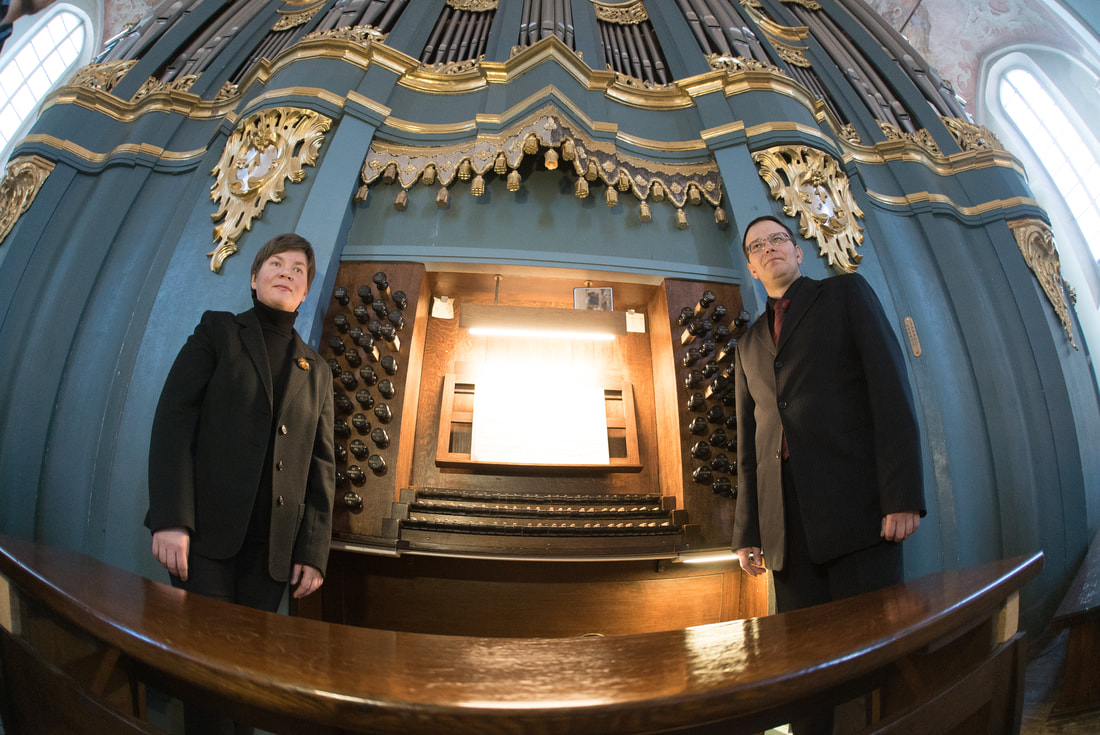
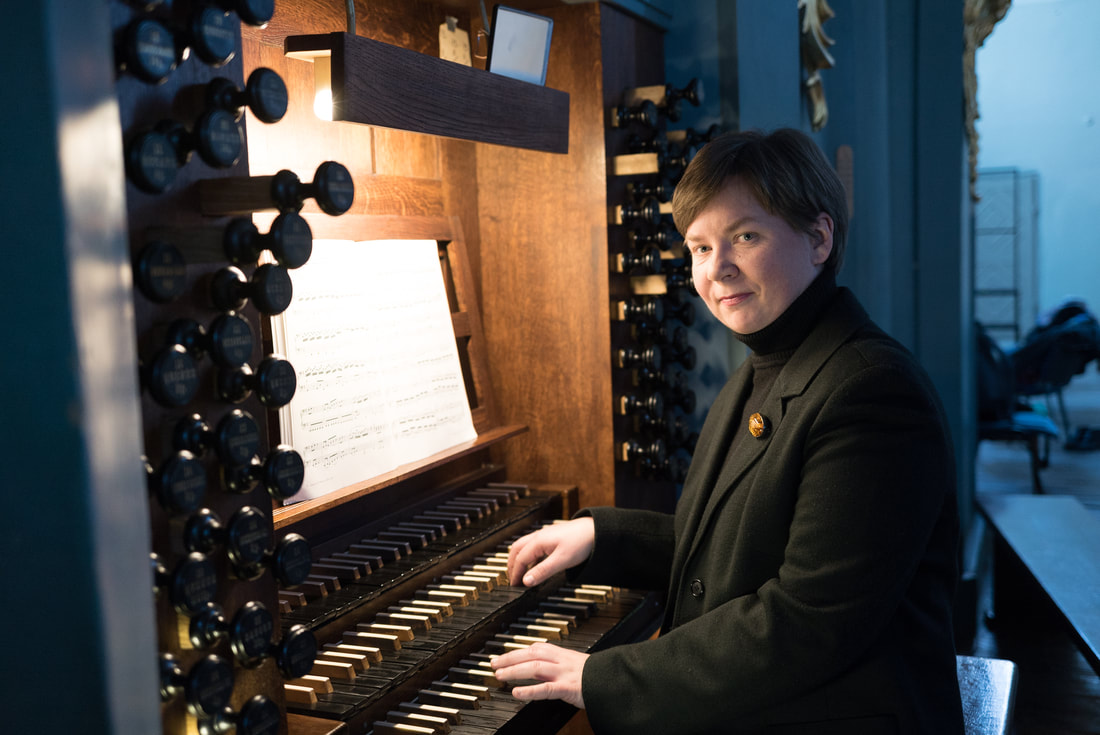
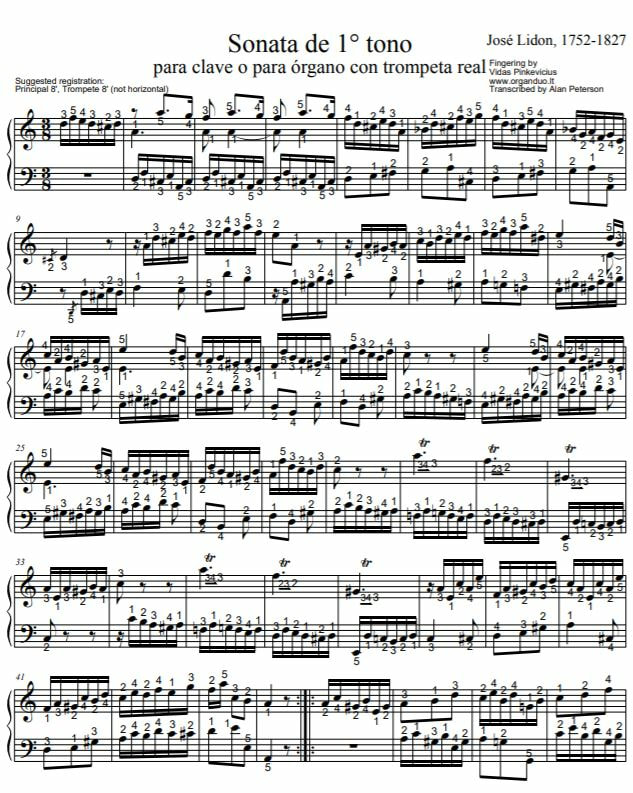
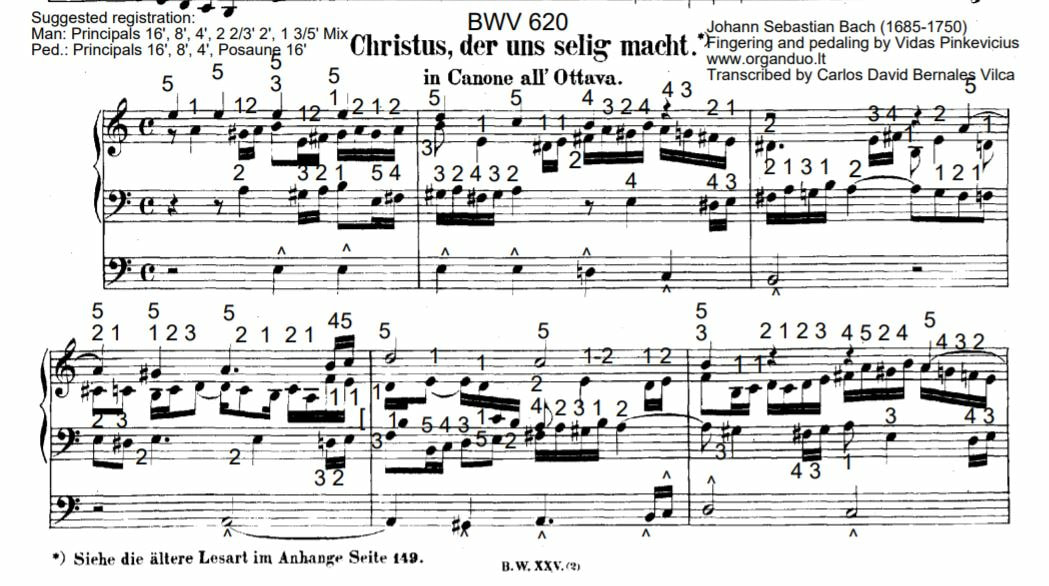
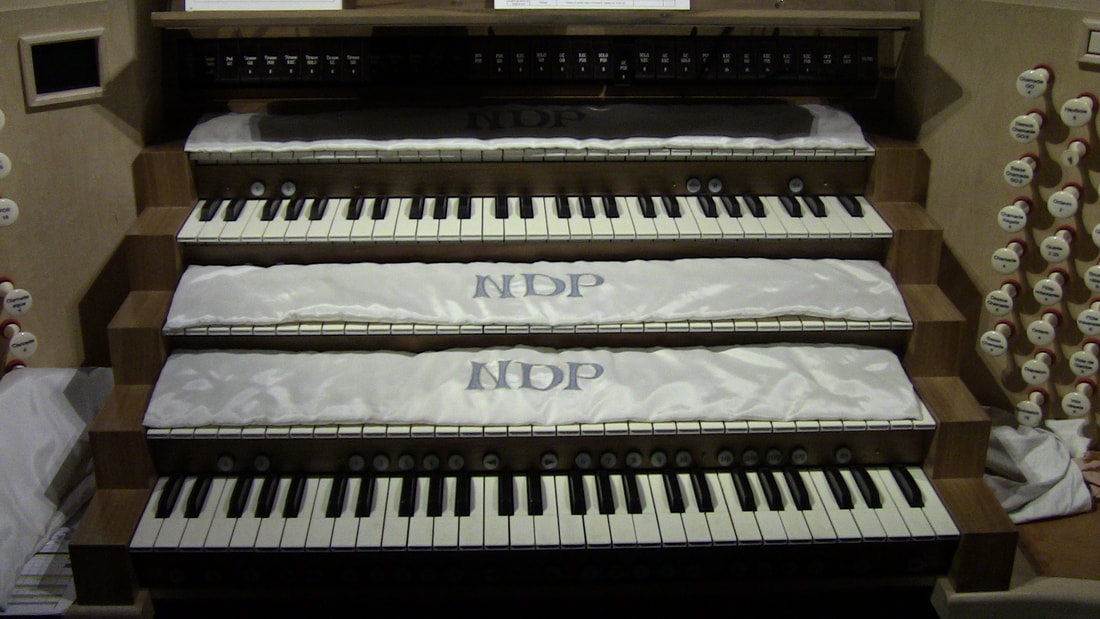
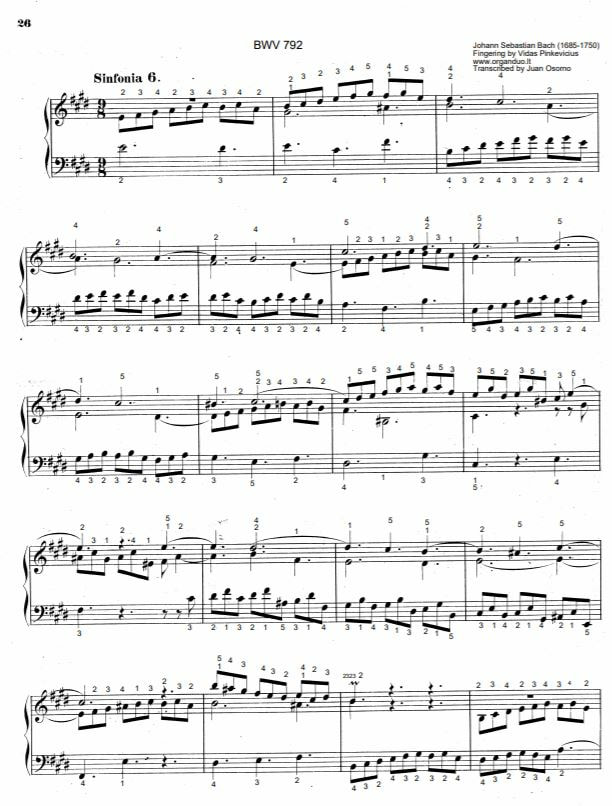



 RSS Feed
RSS Feed